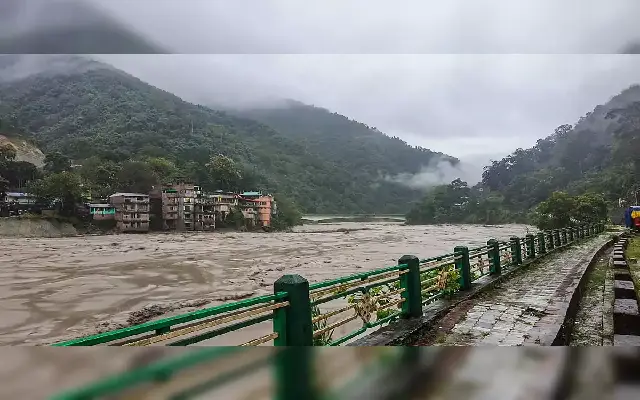New Delhi: The comprehensive policy to deal with the menace of air pollution in Delhi-NCR, as announced by the Commission for Air Quality Management for Delhi NCR and Surrounding Areas (CAQM) on Wednesday, evoked mixed reactions from experts and other community stakeholders.
Terming it as a welcome move, S N Tripathi from the Indian Institute of Kanpur and also a member of the Steering Committee of the National Clean Air Action Plan (NCAP) said: “Broadly based on an airshed approach for the NCR, it is good to see targeted actions and timelines recommended for every sector. The focus on strengthening the quality of air pollution data and filling gaps through sensor-based monitoring to cover rural and peri-urban areas will help the authorities make evidence-driven decisions for better mitigation and abatement measures.”
“Taking multi-pollutant approach to control critical gases, including nitrogen dioxide and ozone, will help reduce exposure to toxic gases and control the secondary particulate matters that are formed as a result. The different agencies entrusted with all these responsibilities must work closely with technical institutions for successful implementation,” he suggested.
CAQM’s whole basis is the airshed approach. Airshed is a geographical area which has an impact on and impacted by atmospheric conditions in that neighbourhood. Hence, CAQM’s jurisdiction comprises not just Delhi-NCR but all surrounding districts of the NCR districts from Punjab, Haryana, Rajasthan, and Uttar Pradesh.
Earlier in the day, the CAQM had brought the policy that contains sector-wise recommendations for agencies and departments of Central government, NCR state governments and Delhi government along with the Central Pollution Control Board (CPCB) and State Pollution Control Boards (PCBs) of NCR to prevent, control and abate air pollution in the NCR, including industries, vehicles/transport, construction and demolition (C&D), dust from roads and open areas, municipal solid waste burning, crop residue burning etc.
The policy framed by CAQM also deals with thermal power plants (TPPs), clean fuels & electric mobility, public transportation, road traffic management, diesel generators (DGs), bursting of fire crackers and abating air pollution through greening and plantation.
Atul Goyal, President of the United Residents Joint Actions (URJA) of Delhi was skeptical.
“Policy makers may design a number of recommendations and activities for the ULBs and other departments but things won’t work unless a chapter on citizen participation mechanism is designed. URJA had previously submitted three or four public participation mechanisms but neither the policymakers nor the administration is willing to accommodate active citizen participation,” Goyal said, pointing to an important aspect.
Aarti Khosla, director of Climate Trends, an advocacy think tank that works on the issue of climate change, including air pollution, shared a relatively balanced perspective.
“CAQM’s sector wise abatement plan is a step in the right direction for science-based policy making. It thrusts on clean power and clean transport as two big fundamentals to transform Delhi’s air and both must be done in right earnest.”
However, she also drew attention to the fact that the policy pushes for natural gas for industries, which “indeed is a climate warming if not polluting gas” and suggested that given the global sentiment on the use of gas, which remains a volatile commodity and subject to inflationary prices, the thrust on gas as a transition fuel will have to be time bound.



















